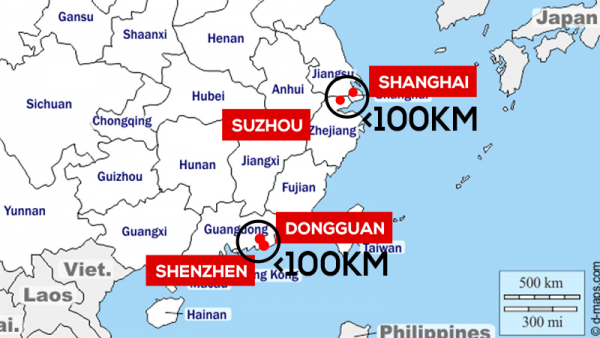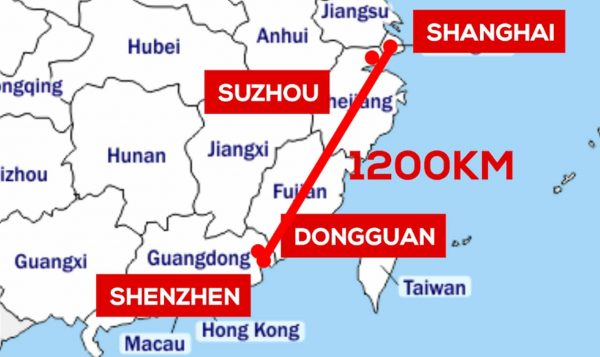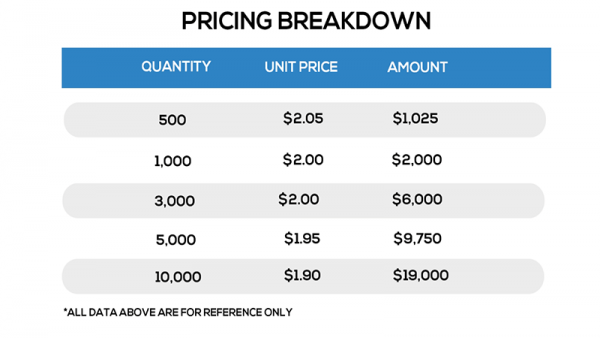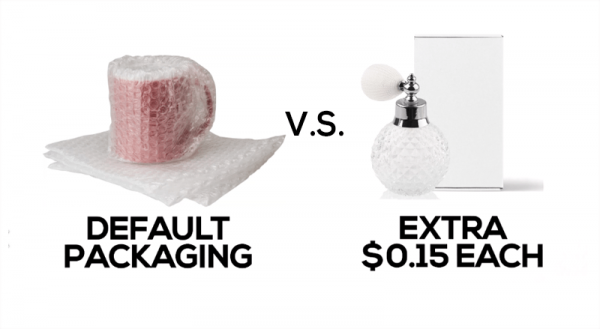How to get accurate quotes when importing products from China
When importing products from China, the first task is to find reliable suppliers and obtain accurate quotes. In international trade, there are numerous trade terms, such as FOB, CIF, DDP, etc., and the detailed costs they involve are often confusing, not knowing how to choose when getting a quote. This article will introduce the common trade terms and their application scenarios, while sharing the common pitfalls when requesting quotes and practical tips to help you avoid the pitfalls and get accurate quotes.
I. the importance of the correct choice of trade terms
When requesting quotes from suppliers, it is crucial to specify the trade terms to be used. Importers have different requirements for suppliers’ delivery locations, which may be Chinese ports, their own ports or suppliers’ warehouses, and suppliers’ responsibilities vary accordingly. There are dozens of trade terms used in international trade, and the International Chamber of Commerce (ICC) publishes books every few years to standardize these terms. However, it is not necessary to remember all the terms, because many of them are only applicable to high-volume transactions, the most commonly used are FOB, CIF, EXW, DDU/DDP.
II. Comparison of Common Trade Terms
(i) FOB (Free On Board)
FOB stands for “Free On Board” and is often mistakenly thought of as the best option, but for new e-commerce sellers, small businesses, or those who want to use a courier service, this is not the case and can lead to unwanted price increases.The FOB price includes all the costs of transporting the product to the ship at the designated seaport or the plane at the airport, as well as the costs of importing and exporting. The FOB price includes all costs incurred in transporting the product to the designated seaport vessel or airport airplane and the costs incurred during the import and export process. When asking for FOB price, you need to specify the port of shipment, such as “FOB Shanghai” “FOB Ningbo”, if you do not know the port of shipment, you can ask the supplier for the nearest seaport and quote accordingly.
Example:
- If you find two suppliers, one in Dongguan, one in Shanghai. The supplier in Dongguan may quote FOB Shenzhen, and the supplier in Suzhou usually quotes FOB Shanghai.

- If you buy 40CBM perfume bottles from a Suzhou supplier and 28CBM bags from a Dongguan supplier, you can ask for FOB Shanghai price for both, but if you don’t want to bear the freight cost from Dongguan to Shanghai (about 1,000 kilometers), you can look for other bag manufacturers close to Shanghai (e.g., Yiwu).

(ii) EXW (Ex Works)
EXW stands for “Ex Works”, which is the original manufacturing price of the product without any service or domestic transportation cost. You need to find your own freight forwarder to pick up the product from the supplier’s warehouse. If you want to know the original price of the product, you should ask the supplier to report EXW price, especially when using FedEx and other courier services, courier companies will go to the supplier’s address to pick up the goods.
(iii) CIF (Cost-In-Transit)
CIF covers cost, insurance and freight. However, insurance is only useful in the event of a total loss of the shipment and does not help with damage during transportation.
- If you don’t have a freight forwarder or don’t want to deal with the hassle of transportation, CIF is a good option. The supplier will ship the products to the designated seaport or airport in your country, but you need to handle the customs inspection, clearance and arrange the transportation from the port to the warehouse by yourself, and you can get assistance from local customs brokers and logistics companies.
- Please note that the freight cost in CIF is only a small part of the total freight cost. Most of the freight cost includes the import process cost and the freight cost from domestic port to address. For example, the sea freight cost in CIF price is about US$50 per cubic meter (from China to US airport), but the actual total freight cost may be as high as US$200 to US$300 per cubic meter.
(iv) DDP/DDU (Delivered Duty Paid/ Delivered Duty Unpaid)
DDP stands for “Delivered Duty Paid” and includes all transportation costs from the supplier in China to the destination in the home country as well as import and export processes and tariffs, making it suitable for importers who don’t have the resources of a shipping company or who don’t want to worry about shipping and import/export issues. If you want to know the cost of importing products from China, you can ask your supplier to quote you the DDP price, which includes import duties paid, but some suppliers want buyers to pay the duties before delivery, i.e., the DDU price, which stands for “Delivered Duty Unpaid”. Although DDU was canceled in Incoterm 2010, it is still widely used.
III.Getting Quotes Based on Quantity
When the purchasing quantity is flexible and you want to know the quotation first, it is recommended to ask the supplier for a price list broken down by purchasing quantity. In China, most manufacturers or trading companies usually set a starting quantity standard, such as US$1,000. Discounts are often available when the order amount exceeds US$5,000 or US$10,000.
In order to get a more accurate picture of the discounts, you should ask the supplier in detail about the discount policy for different purchase quantities. Typically, the best discounts available are around 5% to 10% as the purchase quantity increases. It should be noted that due to the relatively small profit margins in the manufacturing industry, prices tend to stabilize when order quantities reach a certain size, making it difficult to obtain larger discounts.
In addition, we strongly advise against negotiating low prices for large volume orders with suppliers, only to end up placing small orders and trying to take advantage of large volume pricing. Such behavior may damage the business relationship with the supplier, who may perceive you as lacking integrity or willingness to cooperate. In order to maintain a good business relationship, it is recommended that you remain honest and transparent in the purchasing process and ensure that order quantities match the negotiated prices.
IV. Check packaging and private label costs
When obtaining quotes from suppliers, be sure to scrutinize whether packaging costs have been included in the price as well as the specific type of packaging. For example, if the perfume bottle is quoted at $1.50 per bottle and the website shows the use of a white box for packaging, but what you actually receive after placing the order is bubble wrap packaging, the supplier may explain that you need to pay an additional $0.15 for using a white box, which results in a 10% increase in the price of the product.
In addition, if you wish to produce private labeling, by printing a logo on the product or designing specific box graphics, do not assume that the supplier will provide these services for free. After placing an order and paying a deposit, they may charge you for additional customization. Therefore, it is important that you reconfirm the detailed cost of packaging or customization with the supplier before placing the order to avoid unnecessary disputes or cost increases in the future.
To ensure that your purchasing plan goes smoothly, it is recommended that you clearly ask whether the packaging cost, type of packaging and any possible customization cost are included in the quotation when communicating with the supplier. At the same time, you can also ask the supplier to provide a detailed list of costs so that you can better understand and control your purchasing costs.

V. Confirm whether the price is for in-stock or new products
When buying in large quantities, manufacturers will often start production only after receiving orders. However, sometimes suppliers will offer extremely low prices in order to clear out inventory, but it is important to note that when these inventory products are sold out, the price may go back up 20-30% or more for the next production run.
Additionally, backlogged products stored for long periods of time may have dust, rust, or other quality defects, which can adversely affect the performance and longevity of the product. Therefore, if you are not looking for the lowest price, but are more interested in the quality and consistency of the product, then purchasing a new product would be a better option. This will ensure that the quality and performance of the product remains consistent every time you reorder it.
To avoid misunderstandings or disputes over price differences, you need to be proactive and ask the supplier if the price is for stock or new products. Don’t expect the supplier to be forthcoming about this, as their priority is to sell the product and may overlook this detail. Therefore, before confirming the price, you should check it yourself and clearly ask the supplier exactly where the price applies. This will ensure that you get a product that meets your expectations and requirements.
Summarizing
Through this sharing, we hope you have gained a clearer understanding of trade terms, as well as a better understanding of the key things to keep in mind when requesting quotes from suppliers. If you have any questions or need further assistance on the topics discussed today, please feel free to leave a comment below and I will do my best to answer your questions.
As a leading sourcing company in China, we are committed to helping our customers find the best manufacturers, ensure superior product quality, and arrange home delivery services to make your sourcing process easier, more convenient, and safer. If you have a need to source products from China, whether it’s finding the right supplier, negotiating prices, confirming packaging or any other part of the process, we will be happy to provide you with a full range of support and services. Please feel free to contact us and let’s work together for a better future!